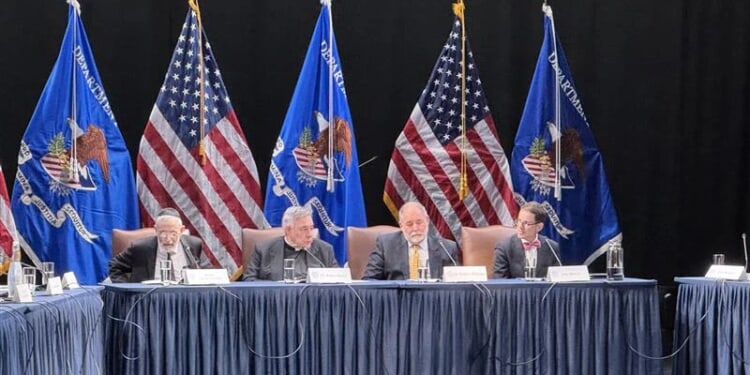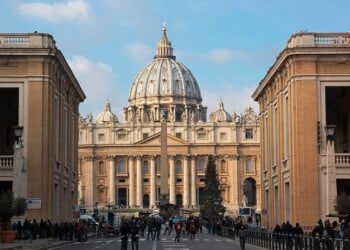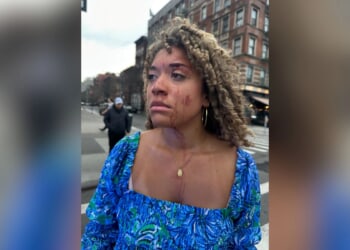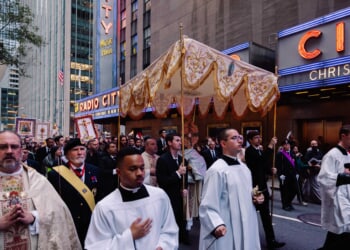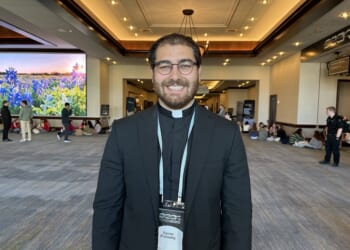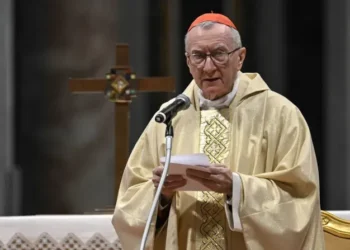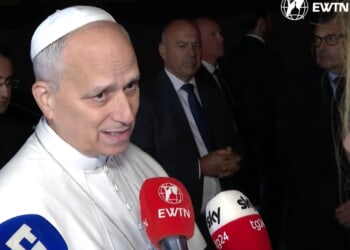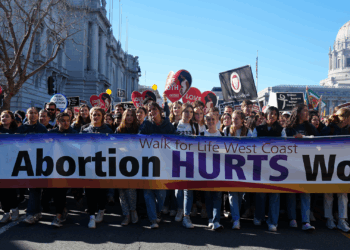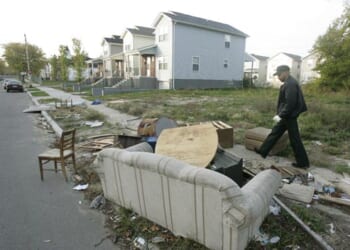Washington, D.C., Sep 29, 2025 /
19:13 pm
Teachers, coaches, and other public and private school leaders said their religious liberty was threatened in American schools at a hearing conducted by President Donald Trump’s Religious Liberty Commission on Sept. 29.
Speakers said there must be a fight for schools to bring back the “truth” to protect students and religious liberty. Joe Kennedy, a high school football coach; Monica Gill, a high school teacher; Marisol Arroyo-Castro, a seventh grade teacher; and Keisha Russell, a lawyer for First Liberty Institute, addressed the commission led by Texas Lt. Gov. Dan Patrick.
“There has to be a call to action,” commission member Dr. Phil McGraw said. “The most common way to lose power is to think you don’t have it to begin with. We do have power, and we need to rally with that power.”
Teachers and coaches describe experiences
Kennedy said he was suspended — and later fired — from his position as a football coach at Bremerton High School in Washington for praying a brief and quiet prayer after football games.
“After the game, I took a knee to say thanks,” Kennedy explained. “That’s all. If that could be turned into a national controversy, it says more about the confusion in our country than the conduct of the person performing it.”
Kennedy told the commission the law is “cloudy and muddy” and they “have the power to clarify it.” Kennedy also said some lawyers “need to be held accountable” for actions taken in religious liberty cases.
Kennedy said: “I don’t know a lot about law and liberty, but I know that you’re supposed to advise people on the truth and the facts, and they’re not. They have an agenda, and their agenda is well set and in place and is working very well, keeping prayer out of the public square. They’re still doing it. That needs to be exposed.”
“Being a teacher has been one of the greatest blessings of my life,” Gill said to the committee. “God really gave my heart a mission … to show all of my students every day that they are loved. No matter what they’re going through, no matter what their grades are, no matter what their status is with their peers, I love them.”
“But in the summer of 2021 … Loudoun County Public Schools adopted a policy that forced teachers to deny the foundational truth of what it means to be human, created as male and female,” Gill said.
“This policy forced teachers to affirm all transgender students,” Gill said. “My employer gave teachers a choice: deny truth or risk everything … I knew that I could not stand in front of my Father in heaven one day and say: ‘My pension plan was more important than your truth.’ I also knew that if I say that I love my students, the only right choice would be to stand in love and truth for them.”
To combat the policy, Gill joined a lawsuit by Alliance Defending Freedom after a fellow Virginia teacher was fired for speaking out against the same policy. The lawsuit “resulted in victory for all teachers to freely speak truth and love when Loudoun County finally agreed not to require teachers to use pronouns in accordance with the student’s sex,” Gill said.
Arroyo-Castro testified that she was punished for displaying a cross in her private workspace in her seventh grade classroom in a New Britain School District school in Connecticut.
“I share this with you to help you understand why the crucifix is so significant to me and why I will never hide it from anyone’s view,” Arroyo-Castro said. “The vice principal told me that the crucifix was of a religious nature, so against the Constitution of the United States, and that it had to be taken down by the end of the day.”
If she did not take it down it would be considered “insubordination and could lead to termination,” Arroyo-Castro said. She asked if she could have time to pray on it, and was told she could, but “it wouldn’t change anything.”
“I was later called to a meeting with the district chief of staff, the principal, the vice principal, [and a] union representative. The chief of staff suggested that I put the crucifix in a drawer. I knew I couldn’t do that since my grandmother has instilled in me the meaning of the crucifix and how it should be treated with respect. But the chief of staff said that the Constitution says that I had to take it down,” Arroyo-Castro said.
(Story continues below)
Subscribe to our daily newsletter
After she refused to remove it, Arroyo-Castro was released from school with an unpaid suspension. She was offered legal defense by lawyers at First Liberty, which sued the school for violating the Constitution. While the lawsuit is ongoing she works in the administrative building “far from the students.”
Arroyo-Castro said: “Every day, I wonder how they’re doing.”
“Please do what you can to educate the districts in American schools about the true meaning of the establishment clause and the free exercise clause,” Arroyo-Castro advised the commission members. “How can we do our jobs well when many education leaders today don’t understand the Constitution themselves? We must understand as Americans that freedom of religion is a right that benefits all Americans.”
Suggestions from faith leaders
Leaders at Jewish, Catholic, and Christian schools also recounted religious freedom issues facing faith-based schools across the nation and what the country can do.
The leaders highlighted the need to protect the financial aid faith-based institutions receive and stop any threats of losing money if certain values are not enforced. Todd J. Williams, provost at Cairn University, said: “Schools will begin to cave because they’re worried about the millions of dollars that will go out the door.”
Father Robert Sirico, a priest at Sacred Heart Catholic School in Grand Rapids, Michigan, said he was recently affected by a decision by the Michigan Supreme Court that redefined sex to include sexual orientation and gender identity.
“While presented as a matter of fairness, this reinterpretation proposes grave dangers, grave risks for all religious institutions, even those like Sacred Heart that receive absolutely no public support,” he said.
Sacred Heart has filed a lawsuit to combat the issue, but Sirico said what needs to be done “exceeds the competency of [the] commission and the competency of this administration.”
“We have to think of this in existential terms, and we have to come at this project with the understanding that this is going to take years to transform. This is why religious people can transform the world: We believe in something that’s greater than our politics. We can reenvision.”

